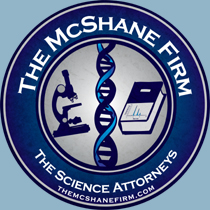In a series of posts, we are going to talk about method validation. Part 1: Introduction-Is it valid, invalid or non-validated? Part 2: What is method validation? Part 3: Can we use someone else’s validated method? Part 4: What triggers verification, re-validation or out right new validation of a method? Part 5: What are the […]

Method Validation for Lawyers Part 4: What triggers verification, re-validation or out right new validation of a method?
In a series of posts, we are going to talk about method validation. Part 1: Introduction-Is it valid, invalid or non-validated? Part 2: What is method validation? Part 3: Can we use someone else’s validated method? Part 4: What triggers verification, re-validation or out right new validation of a method? Part 5: What are the […]

The Particular Witness Rule as established in Bullcoming v. New Mexico
SPECIAL EDITION NEWS FLASH: [Full Disclosure: I was one of the co-authors on the NACDL/NCDD amicus curiae briefs in the case of Bullcoming v. New Mexico. You can hear the audio of the oral argument here. I have waited several hours on purpose to post here in order to try to remain objective.] On September […]

Forensic Science Blogs that I watch
If you don’t have Google Reader with subscriptions set up, then I think you are either drowning in information or don’t have an effective and efficient way of managing your time to make sure that you don’t miss out on information. I personally monitor over 200 blogs each and every day in real time using […]

Is it legitimate for a crime laboratory to use ‘historical data’ to prove its test results are valid?
I am lucky to get questions from colleagues. I am honored by it, and I thank them for the opportunity to answer their questions. From time to time I am going to feature questions that I get from them if they provide for teachable concepts. This question from a colleague provides for just such an […]

Why do instruments need to be calibrated?
Calibration (and bias) schema is a procedure that imperfectly transforms a response into a useful measure. Some crime laboratories have no method or manner as to how, why or when they should calibrate their instruments. Other laboratories have truly arbitrary intervals that they calibrate their instruments, but then they declare that this arbitrary interval is […]

How far have we come in forensic science?
There’s an old saying: “Things aren’t as bad as they used to be.” But is this true in forensic science? Eric Lander is a Professor of Biology at the Massachusetts Institute of Technology (MIT), a member of the Whitehead Institute, and director of the Broad Institute of MIT and Harvard. He currently is co-chair of […]

Forensic Science Reform or Business as Usual?
The Chairman of the United States Senate Committee on the Judiciary, Senator Patrick Leahy (D-Vermont), and his staff announced the release of his proposed bill the “Criminal Justice and Forensic Science Reform Act (CJFSRA).” You can read his press release here about the Criminal Justice and Forensic Science Reform Act (CJFSRA). [The following is a […]

Conclusion to the twelve part ISO 17025 introduction
In a series of posts, I am going to introduce the reader to the existence of ISO 17025 and its importance. I am going to introduce it in bite-sized bits for easy digestion. Just like all matters of learning, knowledge is incremental over time and builds upon previous exposure. So far we have answered the […]

The theme of this blog: Asymptotic analysis
Right now in forensic science generally, I am not too certain it can be said that most folks performing a discipline of forensic science even know their limitations. So, there is nothing to ignore. Perhaps that is why I have started this blog. This blog seeks only to expose the truth: every assay and every […]

What Fletch can teach us about method validation
Ok. Anyone who knows me, has read this blog for a while or has seen me speak knows I love to use movies as transferable concepts to try to explain supposedly complicated scientific concepts. What can the 1985 classic movie “Fletch” teach us about method validation? Just like when “Gordo” said in the above […]


